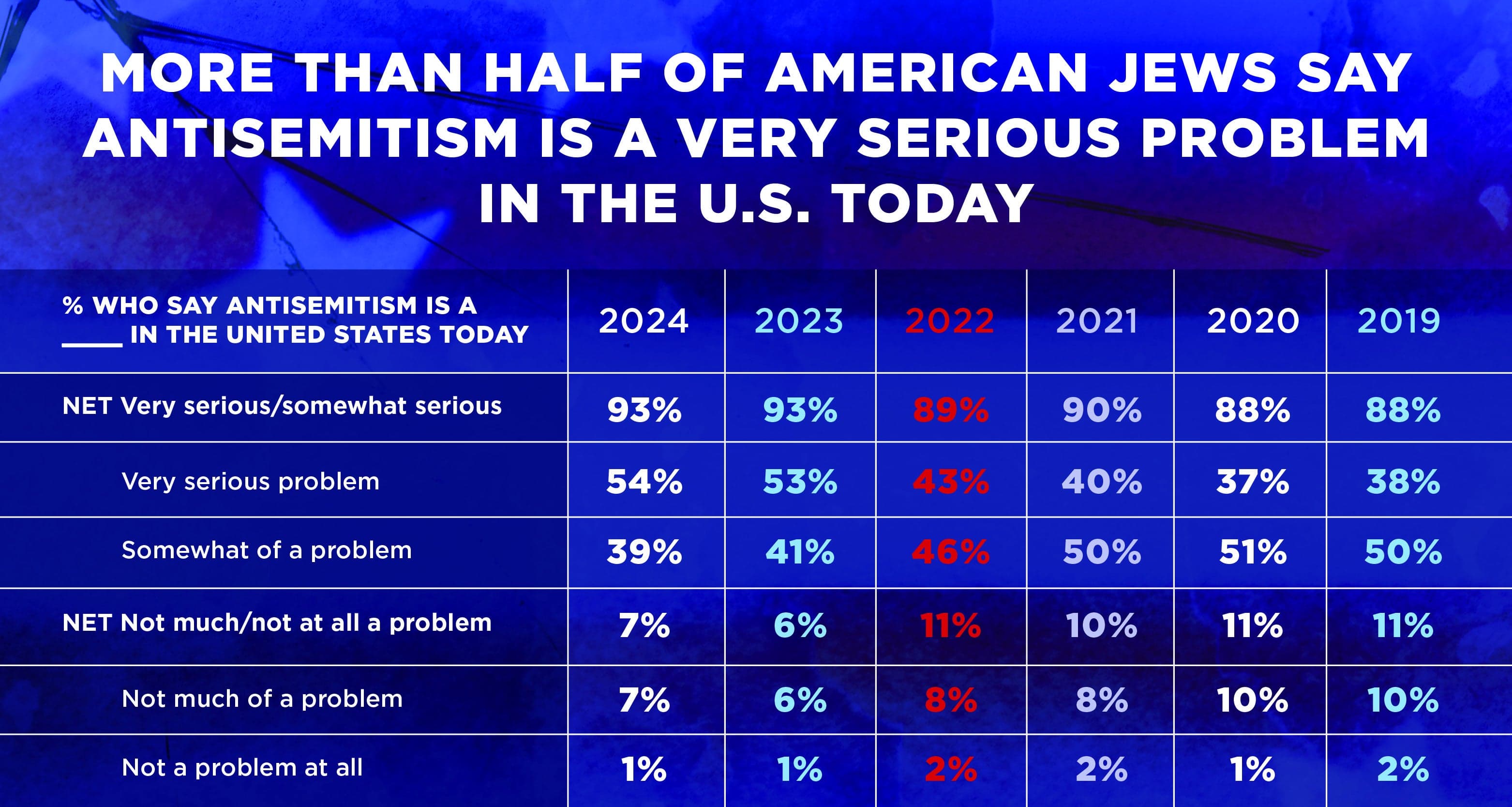Antisemitism Incidents Surge 107.7% in 2024, Fueled by Far-Left and Far-Right Extremism

Antisemitism in the United States has seen an alarming surge, with a 107.7% increase in incidents recorded in 2024, driven significantly by both far-left and far-right ideologies. This drastic rise has prompted concerns across various Jewish organizations and political commentators regarding the polarization of American society. The Combat Antisemitism Movement (CAM) documented 6,326 incidents in 2024, marking a critical moment in modern history.
The American Jewish Committee's (AJC) 2025 report further highlighted that 77% of American Jews feel less safe since the October 7 attacks, with 9 out of 10 observing an increase in antisemitism. Online platforms and college campuses have become major battlegrounds where young Jewish adults encounter antisemitism at an alarming rate. This includes rhetoric from white supremacists on the far-right and anti-Israel extremists on the far-left.
Historically, antisemitism was predominantly associated with far-right groups like the Ku Klux Klan and neo-Nazis. However, 2024 witnessed a decisive shift, with far-left incidents surging by 324.8% compared to 2023, making it the dominant ideological source for 68.4% of recorded incidents. These are often linked to radicalized social movements and anti-Israel activism.
Conversely, far-right incidents, while still a serious threat, saw a 54.8% decrease from 2023, accounting for 7.3% of incidents. The Anti-Defamation League (ADL) noted that all extremist-related murders in the US in 2024 were committed by right-wing extremists, though these figures do not encompass all antisemitic acts. The politicization of antisemitism, with leaders using it to justify other political goals, further complicates the issue.
The tweet by Noah Smith observed, "The American far right and far left basically agreed to be antisemitic. But this will be bad for both of them in the long run, and will strengthen the center." This perspective suggests that the extreme positions on antisemitism might inadvertently push more moderate voices towards a centrist stance. However, recent analyses indicate that while some hope for a strengthening center, political polarization remains a significant challenge, with no clear evidence of a broad centrist resurgence.
Experts emphasize the need for a comprehensive, whole-of-society approach to combat antisemitism, focusing on education, improved security for Jewish communities, and fostering cross-community solidarity. The ongoing rise in antisemitic incidents underscores the urgent need for unified action to protect Jewish life and address the underlying drivers of hate across the political spectrum.